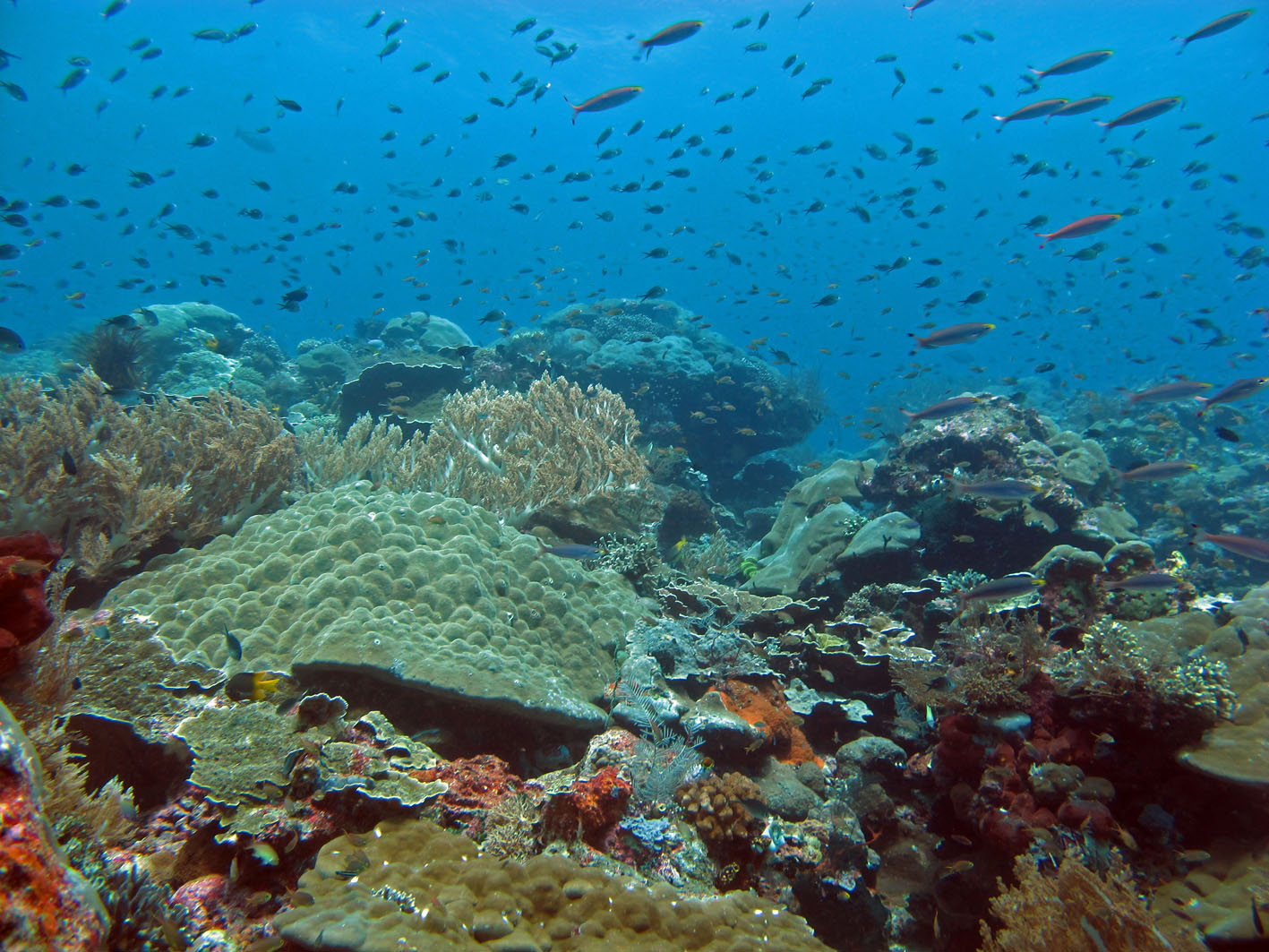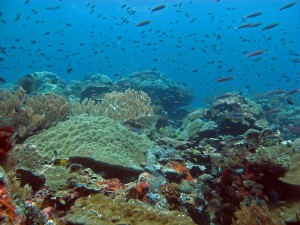Moss Landing Marine Laboratories Professor Jonathan Geller to conduct invertebrate metagenomic analyses and lead workshops for Indonesian and U.S. graduate students
Media contacts:
Brynn Hooton-Kaufman, Moss Landing Marine Laboratories, (831) 771-4464
Dr. Jonathan Geller, Moss Landing Marine Laboratories, (831) 771-4436
Moss Landing, Calif. – 18 September 2012 – A partnership of Moss Landing Marine Laboratories, San Diego State University, UCLA, the Smithsonian Institute and NOAA has been awarded $4.87 million from the National Science Foundation to study marine biodiversity in Indonesia. Funded by NSF’s Partnerships in International Research and Education program, the project will focus on the Coral Triangle, a region that contains the world’s most biologically diverse coral reefs.
Reefs of the Coral Triangle are an extremely important biological and economic resource locally and globally, but are severely threatened by human impacts and climate change. As such, these reefs are important conservation targets. The new project, titled “Assembly of marine biodiversity along geographic and anthropogenic stress gradients,” will use a novel monitoring tool called Autonomous Reef Monitoring Structures (ARMS) to study the impacts of these threats. ARMS are particularly good at capturing the hidden biodiversity that comprises the vast majority of marine biodiversity, including viruses, microbes, smaller animals and algae. For the project, the ARMS will measure what organisms are present in reefs across the Indonesian Archipelago, how the biodiversity of these organisms changes over different areas and how biodiversity is impacted by human-caused environmental stress.
Moss Landing Marine Laboratories (MLML) Professor Jonathan Geller is an important part of the partnership, spearheading MLML’s role and conducting invertebrate metagenomic analyses for the project. Metagenomics is the study of genetic material collected directly from environmental samples, which in the case of the new project, will be collected by the ARMS. In addition, Dr. Geller will also lead workshops in these methods for Indonesian and U.S. graduate students.
The benefits of the project are threefold. First, the information collected during the project will help scientists better understand what affects biodiversity in the Coral Triangle, and this knowledge that can be used to help resource managers protect the valuable coral reef ecosystems. Second, the project will also bring an international collaboration to Indonesia, one of the world’s most populous developing countries, increasing the nation’s scientific capacity. Third, the project will prepare U.S. post-doctoral scholars, graduate and undergraduate students to be global leaders in the science of marine biodiversity, capable of international research in the world’s most diverse marine environments.
Dr. Geller is looking forward to collaborating with the project partners and to sharing his expertise with students. “This is an amazing opportunity to apply state of the art technology to the ocean’s most diverse habitats. With these new tools, we will measure marine biodiversity with unprecedented depth and breadth,” he said. “I am especially excited that our team, including MLML graduate students, will be working closely with Indonesian scientists and students – this will be a true partnership.”
Moss Landing Marine Laboratories is home to the master’s of marine science program for seven CSU campuses, including SJSU, which serves as administrator.



